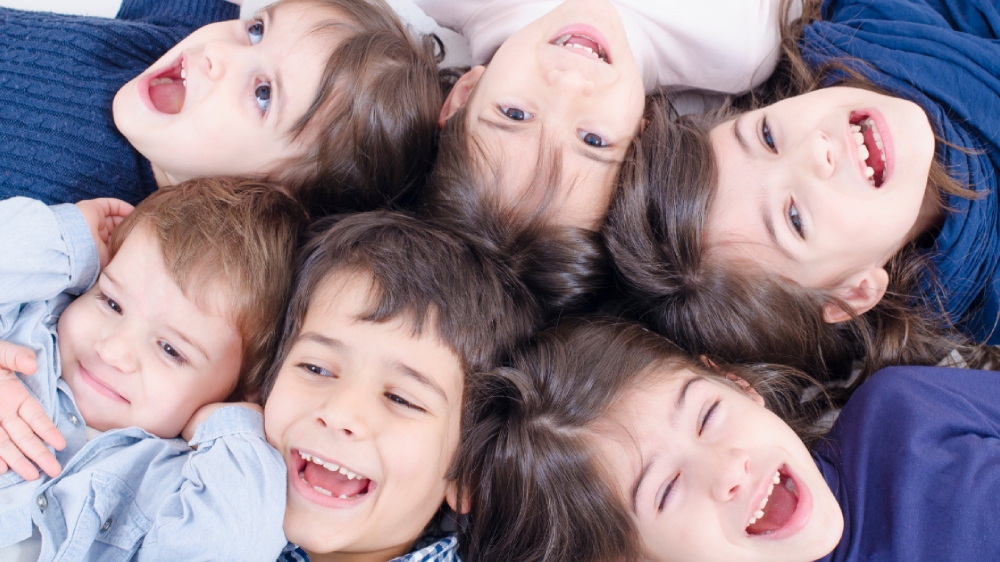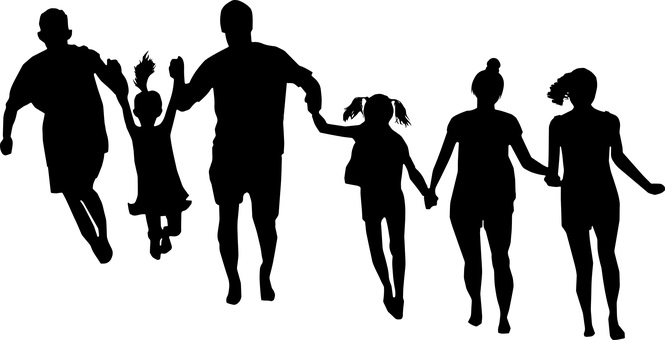BIG Families - How many kids is too many?

There are a number of factors that couples consider when it comes to how many kids they have – especially now that the average age for having a first child is 28.9 years. The main considerations include what is the number that feels good for you? What are your personal preferences and what is your parenting style. Other factors include religious requirements, the size of your home and if you can comfortably afford a larger family – especially as one parent will probably need to provide childcare as the bills would otherwise be astronomical.
Many parents who have opted to make the jump from two to three and then three to four children have commented that these are quite big jumps to make, but adding a fifth child to the family group is easier. The watershed number of kids in a family seems to be five – any more than this is definitely exceptional.
Like with most things in life there are huge bonuses to having lots of kids – and also some big negatives.
.png)
For those who love children the idea of having a big family is very appealing and as long as they realise that they will rarely get to the end of the housework or laundry they will be rewarded with many fun-filled days! Finding time each day for a little 'me' time o recharge batteries is essential too. Having said that, the older children can learn to help out with some of the chores and this will teach them responsibility. The main bonuses for having many kids are:
Children learn how to interact with each other and other people really well.
They learn patience to wait for their turn and to share with their siblings.
They learn how to amuse and entertain themselves.
They learn to be independent and more self-sufficient early on.
They learn from each other and develop great team work.
They learn empathy.
Unfortunately, if you plump for more kids you are likely to receive a few negative comments from other people along the way and sadly larger families receive fewer invitations out .
Your house will always be chaotic and cluttered
Children in large families often compete for parents’ attention
It is usually harder to get a babysitter as many find the task overwhelming
Splitting your kids to be cared for by several different people makes it logistically challenging.
Date nights will be few and far between and mini holidays almost impossible.
It is difficult for your children to have many extra curricular activities because of the costs and logistics involved.
Some experts say that children in larger families fall behind in cognitive achievement and more have behavioural problems.
Our planet needs fewer people and the impact of each child on the earth is huge.

Most families are restricted in size by money and it is the determining factor – along with lifestyle choices. You will find that with many kids, you will need to feed them on a tighter budget and that eating out in a restaurant will be very expensive.
The car you need will definitely have to be a ‘people carrier’ or minibus. The holidays you enjoy will probably be camping or self-catering ones as hotel holidays are usually geared to the ‘classic family’ of two parents and two children. Flying anywhere will be expensive.
Clothing and especially footwear will come with some hefty bills, although there will be the chance to hand many items down from one child to the next. In contrast, parents who opt for fewer kids, feel that they can give each child many more opportunities.
The debate about how many kids are too many continues! Despite the colourful It is however official that bigger families are the happiest! A study recently conducted by the Edith Cowan University in Perth, Australia has found that families with four or more children enjoy the greatest life satisfaction…..food for thought indeed….
Chrissie x

